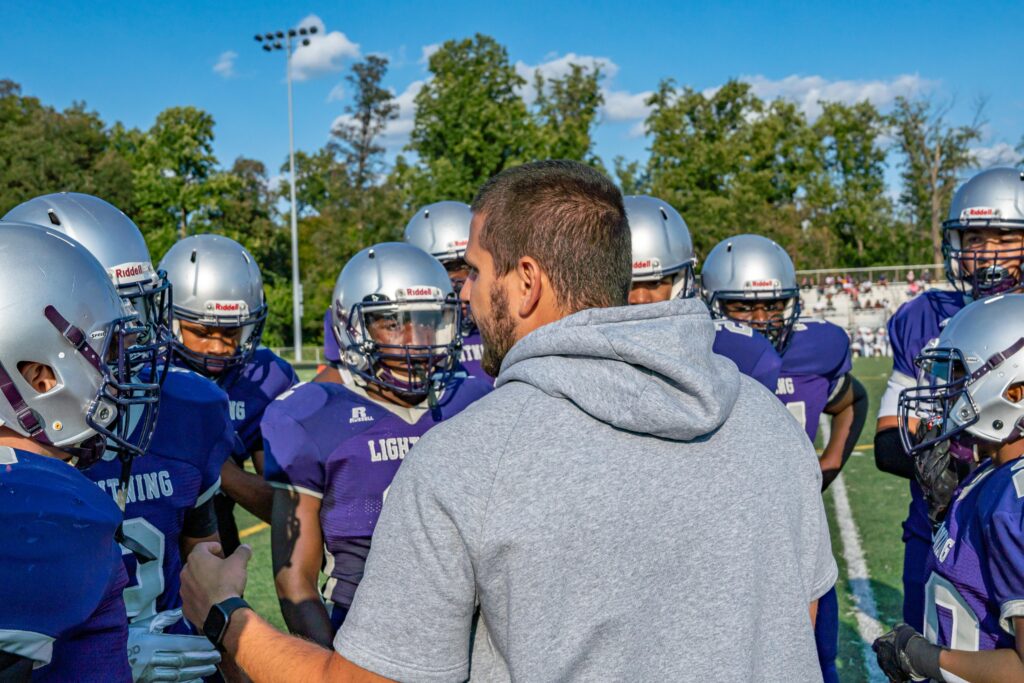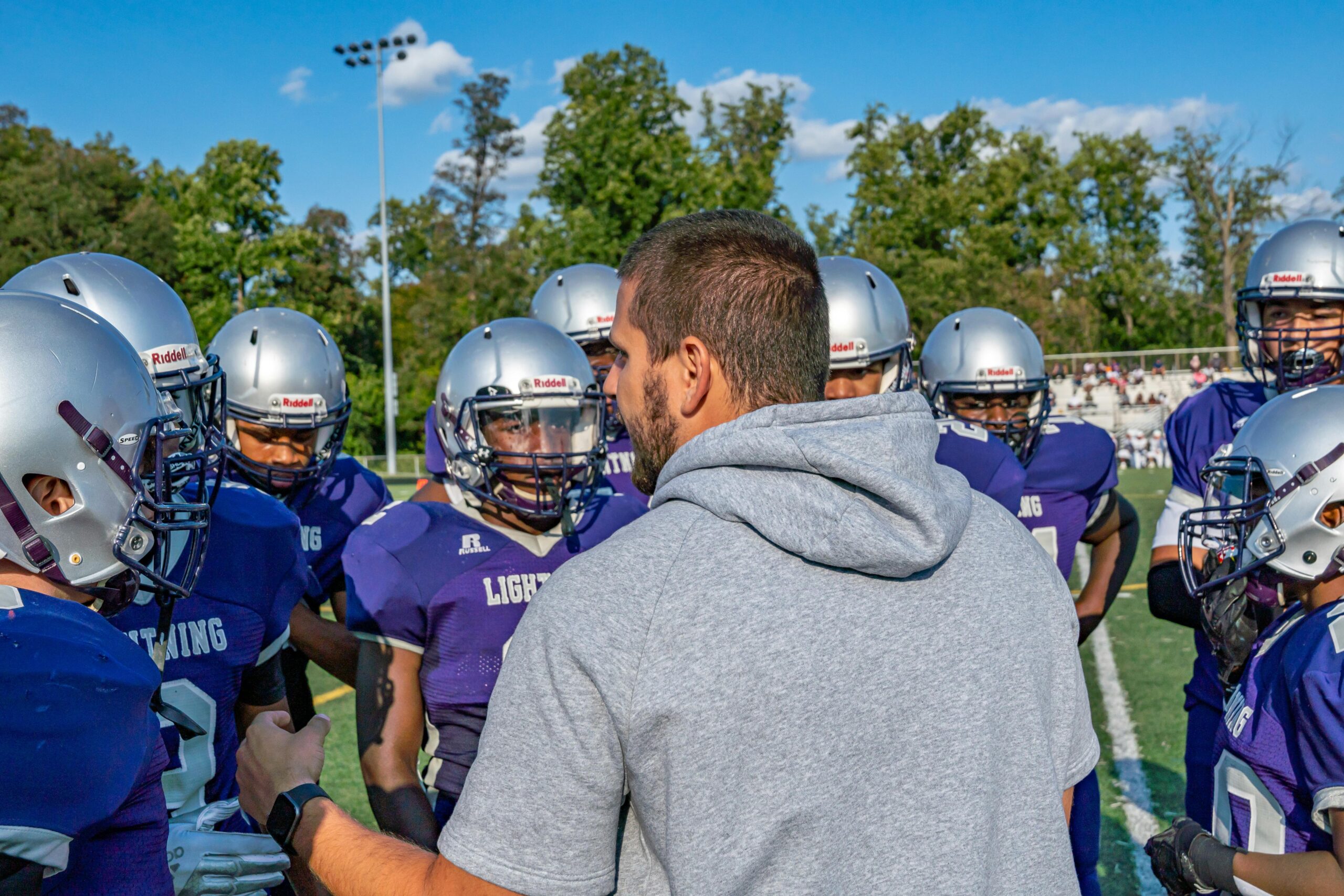How To Get Better At What You Do, Especially Sales

How To Get Better At What You Do, Especially Sales
It doesn’t just happen.
In the past, I’ve dropped into companies as a fractional manager for sales. Be warned: I’m good at this, but not the world’s best. Patience is not something I have in spades, and you’re usually not brought into a situation like this to keep things steady. There’s often pressure to move quickly.
My career in sales began with sales training. You know what’s great about training? You deliver the material, and it’s up to the client company to apply it. Yes, you always have hostages in the room, but often you win them over, in a period of hours, or days, or weeks, or sometimes months.
When you manage? You don’t have months to get people on board. They need to get on the same page quickly if they’re to be part of the solution.
What does this have to do with getting better?
If a manager is doing their job, 50% or more of their time is coaching and developing people. At least in sales this is what a manager needs to do.
Often, that manager runs into resistance with sales reps who say, “I’ve been doing this a long time.” And there the problems begin. Because a manager also needs to install process, probably clean up the pipeline, and ensure data is accurately entered. Oh, and the people often need to improve.
Below is an email (somewhat edited to protect the people involved) I sent to a team on how any of us get better.
Be warned again: references to football.
“It’s impossible for someone to learn what they think they already know.” – Epictetus
On Process:
First, we have to tie our experience as professionals to a framework, or a process. The framework, or the process, enables us to learn and develop skills. We have a process in place for our sales opportunities because it tells us where we are in regard to qualifying a deal.
When I coached football, I met in the offseason with other coaches, many of whom had been coaching for 30+ years. The best ones had a scheme they were committed to. That scheme enabled them to improve as a coach: they knew how to adjust in game, and between games. The scheme itself wasn’t so important as was their commitment to a way of doing things.
When I met with Bill Ballard, a high school coach in Georgia, he’d been running the same defense for 25 years. He’d won hundreds of games doing the same thing, even as offenses changed and adjusted, which happens faster at the high school level than the college or pro level. He said, “It’s what I know. I know how to adjust with this. It works.” When we began using his defense, we would call him mid-season to ask how to adjust: he had the answer because, well, he’d been doing it for 25 years.
In 2008, I met with Gilmer (Texas) High School’s staff. They’d won a few state championships under Jeff Traylor, now the head coach at UTSA. They ran a version of a 50 defense, and when asked why he ran a 50, the coordinator said, “It’s what I know. I’m good at this, so I can teach it.” He knew the strengths and weaknesses of this system and how to maximize or minimize them, given the situation.

The same holds true for sales. We all need a system to follow. Accountants have one. Good project managers have one. Most turnaround executives have one. Attorneys have one, followed by a hefty hourly rate.
Our process is simple: we look to find the following information in the following stages. It can all happen in 1 call, or it may take 10. But it’s the information we need to determine if a prospect can and will become a paying customer.
Suspect:
- We have found someone with an issue who wants to meet with us
Prospect:
- They have a need for our service;
- They have a compelling issue (more on this later);
- They (not “we”) have quantified the impact of doing nothing or of an uplift in performance if the right things happen;
- And they have defined the success they need to see (hurdle rate, NPV, IRR) to invest in this sort of service.
Qualified:
- They are committed to doing something with someone (status quo isn’t an option);
- We’re with the decision maker;
- We have agreed on a ballpark investment amount (and they’re willing to pay more to work with us);
- And we have a timeline for a decision, as well as their criteria/process for a decision.
Closable:
- They have promised to give us a decision within a definite time frame upon presentation of our solution.
Any sales process worth its salt covers the above. Miller Heiman, SPIN, Sandler, MEDDIC, all of them.
Our process doesn’t dictate how you get that information, but gives you freedom there. I’ll gladly coach you on a methodology to get that information as effectively and efficiently as possible. But that process tells us what we need.
If we lose a deal, it’s because we didn’t cover/find out one of the above. Think about it – we either didn’t really know what the real issues were – so we couldn’t speak to and sell to those; we didn’t know what a successful outcome was; we didn’t have access to the right people, or understand their decision process/criteria; they weren’t fully committed to solving the problem; or we didn’t get on the same page EARLY about investment level.
Following the process, we have something to measure our performance against. We have a way of determining if we missed something, or how we can get better. It’s the way we improve: deliberate practice.
I can review a call and ask myself, “Where did I veer off the process? What element did I miss? What could I have done differently? How will I do it differently in the future?”
The lie is that we automatically get better just by showing up. We don’t. We just make the same mistakes again if we don’t have a process for developing our abilities and skills.
Thus, our process.
I then added this, to address internal discussions on price and its impact on our sales. The piece on Bill Parcells I added to for illustration’s sake.
Philosophically, a few items:
We’re in a commoditized space. (Most businesses are.) Others do what we do. The product doesn’t just sell itself. Which is why we have to be great sellers. That does NOT mean we do anything dishonest. Great selling is having a conversation where we deeply understand the prospect and build a case for our service being the right solution. It’s 80% listening, 20% talking.
Because we’re in a commoditized space, that selling is key to getting our price on our terms.
There are exceptions, but we note that those are exceptions, agree on it, and move on.
Bill Parcells, having left the Giants, where he won 2 Super Bowls, and the Patriots, where he took them to a Super Bowl, and then the Jets, where he took them to the AFC championship game (he was trending in the wrong direction, if you follow that), landed in Dallas. Parcells had built some great teams, and had a very specific criteria for what sort of players he drafted: size and speed requirements by position, schools he wanted to draft from, etc…. Those schools were usually SEC schools, even in the early 2000s. One day, meeting with the scouting department ahead of the draft, one person piped up to challenge Parcells on his criteria, citing that Charles Haley had come from JMU, and been part of several Super Bowls.
Parcells said, “You were 5-11 last year. You were 5-11 the year before that, and the year before that. That’s why you pay me $2 million dollars per year. This is how we’re doing things. There are exceptions. When there’s an exception, we all agree on it and move on. Any questions?” The room was quiet. The person who piped up was owner, Jerry Jones.
Leadership has committed to raising prices. Others are, but so are we. For you guys, it represents a built-in cost of living adjustment as it directly impacts your commissions. But it requires we find a reason for prospects to pay a little more to work with us vs. others. (We know one competitor who prides themselves on low prices, and the results speak for themselves.)
On pricing… it is a COMPONENT of how and why people buy. As is ROI at this level. But there are other elements that prospects are seeking in tandem with the right price:
- Confidence in our abilities;
- regular, effective, and professional communication;
- Relationship with us;
- Conviction that we can deliver;
- Our team’s experience (which reduces risk);
- Accurate data;
- Their (prospect’s) own bandwidth;
- The future value of the incremental revenue we help them get;
- Their experience with others in our space;
- The cost of trying to do this internally.
If someone believes 2 companies are entirely the same on all those fronts (assuming those are what’s important to them), then it would come down to price.
But how often do they really believe 2 companies are exactly the same? If they do, we missed something in how we listened to them, understood them, and focused on their biggest concerns.
I’m against making all decisions about whether or not we’re a fit for a group based on what we believe we can do, because humility tells me I can’t make that decision for someone else. If they’re ok with a lower ROI than we expect to provide to our clients, there must be a reason for it. My job is to find out why as quickly and as deeply as possible, not tell them it’s not good enough.
Another note: A higher price is often a signal that indicates MORE value. When I can’t decide between two service providers or products, I have a heuristic that says, “Pay more. It’s safter.” If we run great sales calls, people will not just suspect it, but feel that greater value.
– Adam
Businesses need processes and systems to run. Sales is no different. The big differentiator in this function is that other functions like legal and accounting come with built-in processes for the people hired to do those jobs: it’s part of their training.
For salespeople, most don’t come with a process in their training. (They were often liberal arts majors, by the way.) If they had training. You have to provide it.
Are you the salesperson and owner? Get a process. Adhere to it.
Are you a salesperson whose manager doesn’t put in a process? Get one. Adhere to it.
In either case, you’ll see your earnings increase, along with your effectiveness and confidence.




